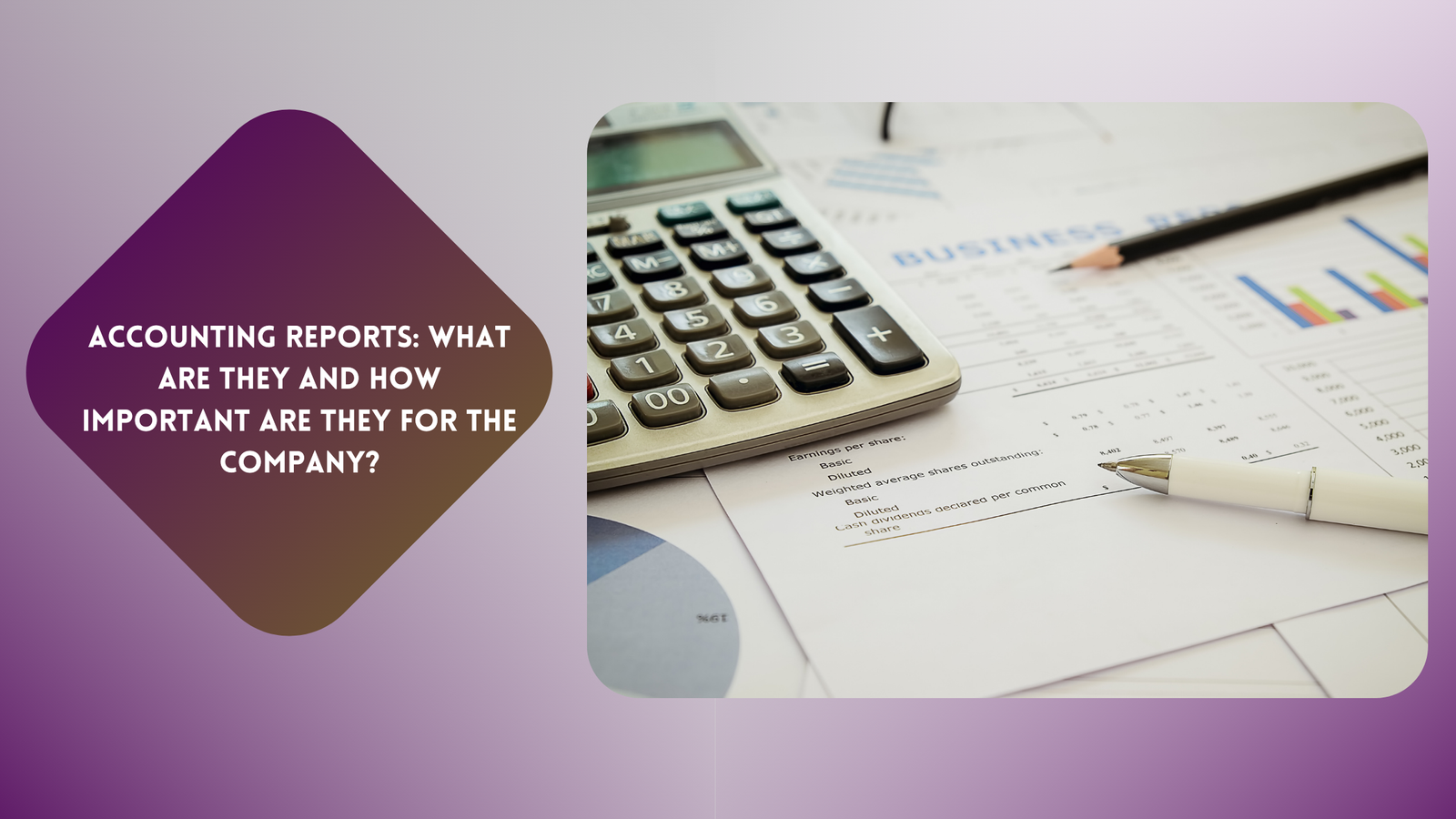
Accounting reports: what are they and how important are they for the company?
Accounting reports are documents that describe, with technical data, all the information collected by the accounting departments of companies. These records include all the amounts of expenses, costs, and taxes due or paid.
Reports are usually made monthly, quarterly, or annually — this frequency varies according to the standards stipulated by the establishments. To ensure that they can be accessed whenever necessary, this information can be printed or stored in digital files.
If you are looking for information regarding accounting reports, today’s post was specially prepared to improve your knowledge on the subject. Pay attention as you read and enjoy.
In this article, we talk about the Accounting reports: what are they and how important are they for the company? the critical role these reports play in maintaining a company’s financial health, aiding decision-making, and supporting strategic planning.
Table of Contents
Togglekey Points for you
- Accounting reports are categorized into mandatory and non-mandatory types.
Mandatory reports include a balance sheet (BS), an income statement (IS), and other documents required by law.
- Non-mandatory report Examples include the Cash Flow Statement (DFC) and Statement of Added Value (DVA).
How important are these reports? They summarize and organize financial data for easy interpretation.
- The use of tools like ERP systems ensures efficient and precise data collection.
What types of accounting reports are there?
There are only two types of accounting reports: mandatory reports and non-mandatory reports.
See below the specific characteristics of each type of report generated by financial accounting:
Mandatory reports
Known as Financial Statements, mandatory reports are those required by law. These include documents such as:
- Balance Sheet (BS);
- Income Statement (IS);
- Statement of Accumulated Profits or Losses (DLPA);
- Demonstration of Sources and Applications of Funds (DOAR) — only for Public Limited Companies.
Depending on the situation, these reports may need to be published in written media.
Non-mandatory reports
Non-mandatory reports are those that are not required by law. However, they are extremely important for decision-making by business owners and company managers, as their data can define important investments, among other functions.
They are:
- Cash Flow Statement (DFC): except for publicly traded companies or companies with net equity exceeding R$2,000,000.00, when it becomes mandatory;
- Statement of Added Value (DVA): except for publicly-held companies.
Both reports describe past operations, allowing managers to easily access forecasts of expenses and revenues for future periods.
How important are these reports?
All accounting reports are important for assessing the company’s financial health. After all, they summarize all the information in an organized and reliable way.
Without this control, a manager puts the success of his administration at risk. Therefore, he must analyze them with great caution and attention.
How to Draw a Trendline?
All work involving the collection of information — including the delivery of accounting reports to the board of directors, management, and administrative council of companies — must be carried out with great perfection, as these documents play a fundamental role in the administration of the enterprises.
Therefore, maintaining an updated cash flow provides the manager with an insight into the company’s financial situation, helping in advance decision-making.
For this reason, accounting reports must be prepared by accounting professionals with experience in the field. Since they deal with the financial area of a business, these documents are extremely important, and any error in collecting and interpreting data can mean a huge loss for the company, whether due to a poorly applied investment or a poorly informed decision.
How are they made?
A small business presents challenges that surprise most of its managers. It is essential to be prepared to overcome them without major difficulties. Preparing an accounting report requires knowledge and a differentiated view of the economic issues of the business.
Therefore, using ERP is a great choice for those who want practicality. With it, it is possible to obtain information on all accounts payable and receivable. In addition, this technology should work remotely to increase flexibility in an administrator’s work routine.
Successful management depends on the balance between efficient software that is suited to your needs and practices that bring good results.
Before taking any action, it is necessary to create a good chart of accounts. At these times, generalizations should be avoided. In other words, the list of existing records must respect the hierarchy of management products and sub-products. For example, if there is more than one type of product for sale, their entries must be entered separately.
Another very important issue is related to the provisioning of values. All values must be provisioned, in the short and long term. When this does not happen, the balance sheet is incomplete.
What benefits do they bring to the business?
The advantages that accounting reports provide to a business are varied. We cite some of the main examples below:
Better decisions
Anyone who runs a company is under pressure from all sides to achieve positive results. This person must choose the best professionals in the market, know how to communicate with their work team, and make efficient decisions. Any mistake can jeopardize the achievement of positive numbers and open space for competitors to gain market share.
In this scenario, accounting reports make it easier to understand the current economic situation of management. As a result, it is possible to choose solutions that increase productivity and foster company growth.
The advantages that accounting reports provide to a business are varied. We cite some of the main examples below:
Easy access to credit
Nowadays, most financial institutions still do not request accounting reports from small and medium-sized companies. However, banks are preparing to request these types of documents before granting small loans.
Long-term financing, such as that provided by the National Bank for Economic and Social Development (BNDES), requires greater rigor in the financial health of establishments. This type of investment is essential for expanding the company’s activities and increasing its reputation in the market.
The increase in credit made available depends on the analysis of the required accounting reports. Therefore, they must be updated to demonstrate the business’s payment capacity.
Conclusion
Accounting reports are the backbone of any business. They are not only a snapshot of the company’s financial health but also support decision-making, strategy formulation, and financial planning. With these reports, businesses can make informed decisions, create targeted strategies, and improve their chances of securing credit for growth and expansion.
FAQs on How to Perform Trend Analysis for Profitable Trading
Q1 How to write a good accounting report?
Ans A good accounting report should be clear, accurate, and well-structured. It must use precise financial data, which is organized in logical sections, and must include visual aids such as charts for clarity. It must also be tailored to the purpose of the report: either compliance, decision-making, or performance evaluation.
Q2 What is a successful report?
Ans A good accounting report communicates actual, well-coordinated financial information so that it is suitable for users. Its purpose is so that the stakeholders can perceive the health of the business easily to make informed choices. To be effective it must clearly present, have reliability, and have actionable insights to it.
I'm Abhishek, a passionate and creative professional dedicated to making waves in the dynamic world of digital marketing. Today, I'm proud to bring my skills and experience to StofinIQ, where I thrive , delivering impactful content and innovative strategies to inspire and engage audiences.






Post Comment